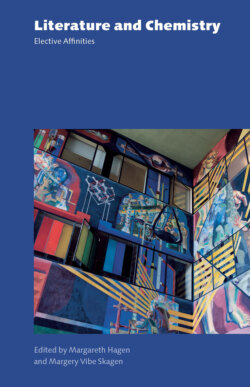Читать книгу Literature and Chemistry - Группа авторов - Страница 19
На сайте Литреса книга снята с продажи.
THE EMPIRICIST
ОглавлениеScientific writing, the laboratory experiment, and the rational precision and analysis of results, then, all lie at the heart of Levi’s writing, work, and vocation as a Holocaust witness.
There is, however, something limiting, even clichéd in this account of both Levi and of science – and perhaps especially chemistry – as all reason and light, all cerebral observation and reflective analysis.
In fact, Levi’s science, as several historians and philosophers of science have noted, was closer to late Renaissance or early Enlightenment empiricist practice than to abstract ratiocination, closer to Bacon than Descartes.7 It was applied, practical, and material rather than abstractly analytical. In The Periodic Table, Levi describes his devotion to chemistry in a mock-epic and mock-mystical style, as a grand struggle against the god-like figure of Matter, Hyle. And the struggle is a ‘contact sport’: touching Matter is itself a ‘thinking’ process for Levi, just as much as formulating ideas and using language are. The chemist, scientist, and problem-solver thinks as much with his hands as with his brain, as he notes in a story called “His Own Blacksmith”:
I’ve also noticed that, as you do things, other things come to your mind in a chain: I often have the impression that I’m thinking more with my hand than with my brain.8
Levi’s manual philosophy of mind points us to a key differentiator between the rationalist and the empiricist, in the history of science and in Levi too: the idea of the senses. It is this sensory domain that I wish to recover here.
